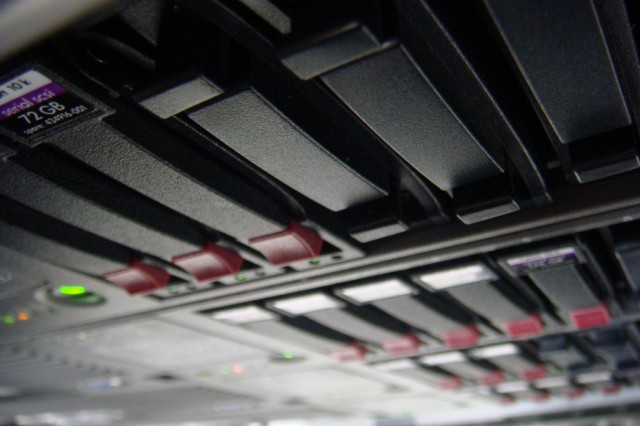
Apple's long-rumored content delivery network (CDN) has gone live in the US and Europe, delivering traffic directly to Comcast and other Internet service providers thanks to paid interconnection deals, Frost & Sullivan analyst Dan Rayburn reported today.
The CDN can deliver multiple terabits of data per second and will help Apple more efficiently distribute new releases of iOS and OS X.
Apple is still using Akamai and Level 3 CDN services for iTunes and app downloads, "but over time, much of that traffic will be brought over to Apple’s CDN," Rayburn wrote. "It’s too early to know how much traffic will come over and when, but Apple’s already started using their own CDN much faster than I expected. The pace of their build out and amount of money they are spending on infrastructure is incredible. Based on my calculations, Apple has already put in place multiple terabits per second of capacity and by the end of this year, will have invested well more than $100M in their CDN build out." Apple has been working on its CDN for about a year.Rayburn is an expert on the streaming media industry and has well-placed sources within ISPs and major tech companies.
We've asked Apple for comment but haven't heard back yet. A Comcast spokesperson told Ars that "in general our interconnect deals are confidential."
While Apple didn't confirm its CDN plans publicly, Rayburn pointed to a trace route showing that OS X downloads are going directly from Apple to Comcast's network. Rayburn didn't mention other ISPs by name, but AT&T and Verizon are good bets to have interconnects with Apple's new CDN as well. Comcast, AT&T, and Verizon are all getting paid by Netflix for direct interconnection at peering points throughout the US, ensuring that Netflix traffic isn't slowed down by congestion before it enters their networks. (Verizon has been slow at turning on the links with Netflix, however.)
Netflix is moving all of its traffic from third-party CDNs to its own CDN, but Apple may not.
"While Apple will probably never completely move away from third-party CDNs, like Netflix did, they will rely less on third-party CDNs over time, just like we have seen with Microsoft, YouTube, Netflix and others," Rayburn wrote.
Level 3 will be able to make up lost CDN revenue because "they are one of the vendors that Apple is buying wavelengths, IP transit, fiber and other infrastructure services from," Rayburn wrote. "Akamai will see the most negative impact over time since almost 10 percent of their revenue comes from Apple and they can’t sell Apple wavelengths, transit, co-location or other network related products."
While Apple doesn't consistently deliver anywhere near as much data as Netflix, the company's operating system downloads can occasionally rival Netflix traffic in short bursts. When iOS 7 was released in September 2013, one unnamed Internet provider saw 20 percent of its traffic dedicated to Apple updates, Sandvine reported last year. Netflix accounts for about a third of Internet traffic in North America during peak viewing hours.
With the Apple CDN now live, customers should see better performance on large downloads.
"Apple already controls the hardware, the OS (iOS/OS X) as well as the iTunes/App store platforms," Rayburn wrote. "Right now they control the entire customer experience, except for the way content is delivered to their devices, and they are quickly working to change that. While Apple doesn’t own the last mile, paying to connect directly to it (in some places) and delivering content from their own servers allows them much more control over the user experience, especially for cloud based services."
Apple is "just getting started," he concluded.
reader comments
73